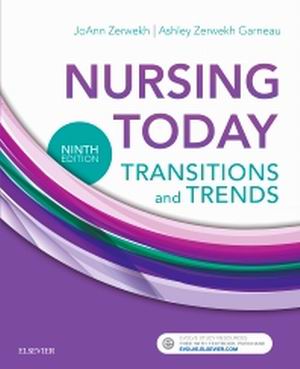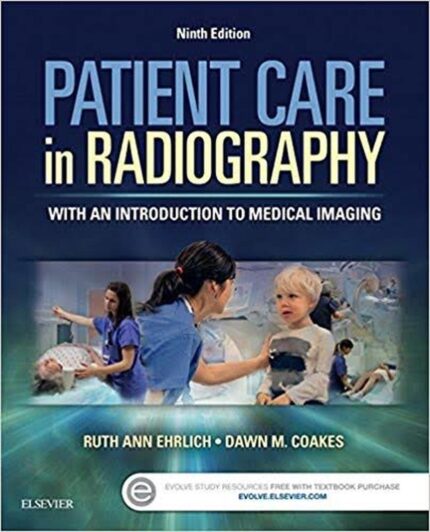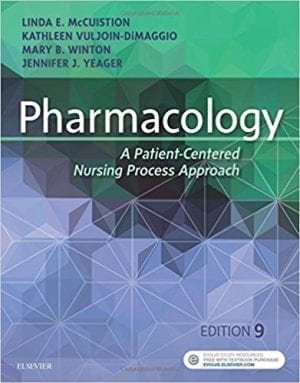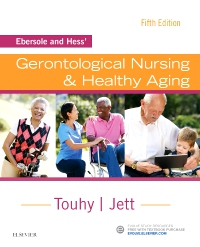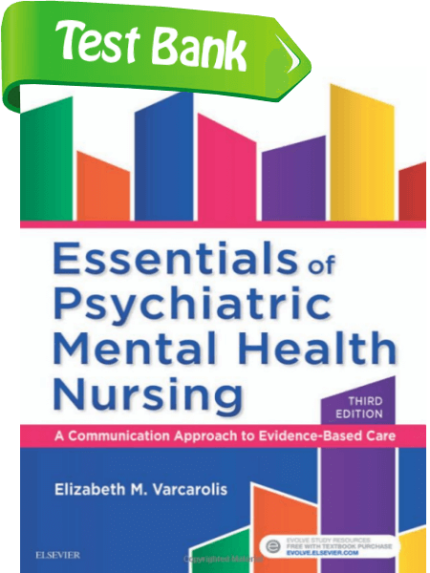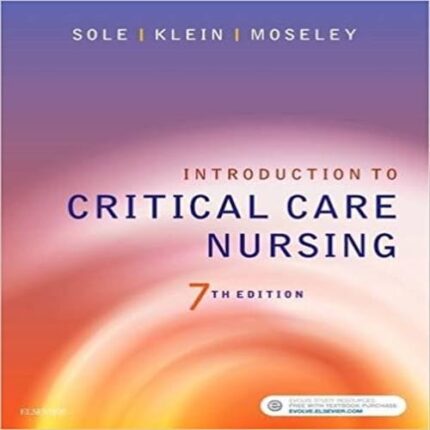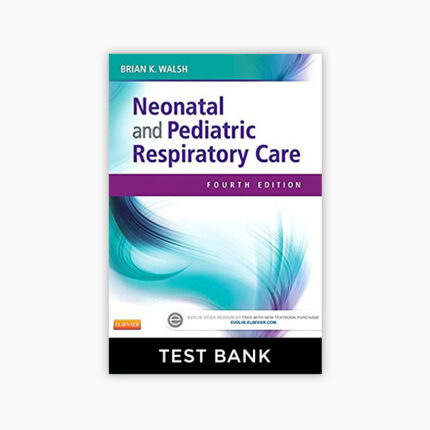Test Bank for Nursing Today 9th Edition by Zerwekh
Chapter 01: Role Transitions
MULTIPLE CHOICE
- A graduate nurse has been hired as a nurse at a local hospital. The new nurse is in the honeymoon phase of role transition when making which of the following statements?
| a. | “I am so nervous about being on my own as a nurse.” |
| b. | “This will be a great learning experience.” |
| c. | “I can’t wait to have a steady paycheck.” |
| d. | “This job is perfect. I can finally do things my own way.” |
ANS: D
The honeymoon phase is when the student nurse sees the world of nursing as quite rosy. Often, the new graduate is fascinated with the thrill of arriving in the profession. Reality shock occurs when one moves into the workforce after several years of educational preparation. Recovery and resolution occur when the graduate nurse is able to laugh at encountered situations. During this time, tension decreases, perception increases, and the nurse is able to grow as a person.
PTS: 1 DIF: Cognitive Level: Application/Applying
REF: Table 1.1 OBJ: Identify the characteristics of reality shock.
TOP: Reality shock MSC: NCLEX®: Safe and effective care environment
- Which of the following actions by the graduate nurse is an inappropriate methodology to recover from reality shock?
| a. | Networking |
| b. | Obtaining a mentor |
| c. | Returning to school |
| d. | Joining a support group |
ANS: C
The transition period is successfully managed when the graduate is able to evaluate the work situation objectively and predict effectively the actions and reactions of other staff. Nurturing the ability to see humor in a situation may be a first step. Returning to school is a positive step after the graduate has worked through role transition, has some clinical experience, and is ready to focus on a new career objective. Networking, obtaining a mentor, and joining a support group would give the graduate nurse an opportunity to talk to others experiencing the stress associated with reality shock. The nurse would benefit from “talking through” issues and learning how to cope.
PTS: 1 DIF: Cognitive Level: Application/Applying
REF: p. 9 OBJ: Describe methods to promote a successful transition.
TOP: Reality shock
MSC: NCLEX®: Safe and effective care environment Not applicable
- A nurse is trying to avoid burnout. Which of the following actions is a valid way to achieve this?
| a. | Refusing to constantly work extra shifts |
| b. | Withdrawing from peer support group |
| c. | “Going native” |
| d. | Changing jobs every 6 to 12 months |
ANS: A
One of the quickest ways to experience burnout is to “overwork the overtime.” Set priorities with your mental and physical health being the highest priority. Learning to say “no” to extra shifts is a positive means of coping of avoiding burnout. “Going native” is the term that describes how recent graduates begin to copy and identify the reality of their role-transition experience by rejecting the values from nursing school and functioning more like a team member at their place of employment. Withdrawing from peer support groups, “going native,” and changing jobs every 6 to 12 months would increase the chance of the nurse experiencing burnout. The nurse should instead focus on his/her practice and seek out support from other nurses.
PTS: 1 DIF: Cognitive Level: Application/Applying
REF: p. 7 OBJ: Describe methods to promote a successful transition.
TOP: Reality shock
MSC: NCLEX®: Safe and effective care environment Not applicable
- Which of the following statements by the graduate nurse shows an understanding of reality shock as it applies to nursing?
| a. | “Reality shock is the period when a person moves from school into the workforce.” |
| b. | “Reality shock is the realization that practice and education are not the same.” |
| c. | “Reality shock is the period from graduation to becoming an experienced nurse.” |
| d. | “Reality shock is a transition phase that new graduates go through before changing jobs.” |
ANS: A
“Reality shock” is a term often used to describe the reaction experienced when one moves into the workforce after several years of educational preparation. The new graduate is caught in the situation of moving from a familiar, comfortable educational environment into a new role in the workforce where the expectations are not clearly defined or may not even be realistic. The realization that practice and nursing school are not the same is often associated with “going native.” When nurses move from one position to another, they have already experienced reality shock. Becoming an experienced nurse takes time and is not part of the definition of reality shock.
PTS: 1 DIF: Cognitive Level: Application/Applying
REF: p. 5 OBJ: Identify the characteristics of reality shock.
TOP: Reality shock MSC: NCLEX®: Not applicable
- A student in the last semester of nursing school has established a goal of making a successful role transition to graduate nurse. Which statement by the student indicates his/her understanding of how to achieve this goal?
| a. | “I should care for increased numbers of patients to enhance work organization skills.” |
| b. | “I will observe staff nurses as they perform nursing procedures to refine technique.” |
| c. | “I should seek increasingly close guidance from the nursing instructor to reduce errors.” |
| d. | “I will evaluate my progress every 7 weeks or more to allow time for growth.” |
ANS: A
It is important for the student to start taking care of increased numbers of patients to help with time management and work organization. The student should also be able to function without close guidance from the nursing instructor. Although it is good for students to observe staff, a student in the final semester should be able to perform tasks with minimal observation and should instead focus on implementing care and time management. Waiting 7 weeks to evaluate progress would not be helpful to the student. Although regular self-evaluation is an important process, it is the actual experience of taking realistic patient assignments and working typical shift hours that assists with successful role transition.
PTS: 1 DIF: Cognitive Level: Application/Applying
REF: p. 13 OBJ: Describe methods to promote a successful transition.
TOP: Reality shock MSC: NCLEX®: Not applicable
- A new graduate of less than 1 year describes his/her perception of a staff nurse position, stating: “It feels great to be a nurse! In fact, it’s a snap! I can hardly believe there’s no instructor looking over my shoulder.” What phase of reality shock is the graduate experiencing?
| a. | Recovery |
| b. | Shock and rejection |
| c. | Honeymoon |
| d. | Transition |
ANS: C
In the first phase of the role transition process (the honeymoon phase), the graduate nurse is thrilled with completing school and accepting the first job. Life is a bed of roses because everyone knows nursing school is much harder than nursing practice. Shock and rejection occur as the nurse tries to understand how nursing school and the “real world” come together. Transition occurs as the nurse begins the move from student to nurse and refers to the entire process, not just a particular phase. The recovery phase is when the nurse can laugh at situations that he/she is in and is able to cope with the situations that are being faced.
PTS: 1 DIF: Cognitive Level: Application/Applying
REF: p. 7 OBJ: Compare and contrast the phases of reality shock.
TOP: Reality shock MSC: NCLEX®: Not applicable
- A new graduate has worked on a busy unit for 6 months since graduating from nursing school. The graduate tells a friend, “I’ve never been so upset in all my life! The care that some of the staff give our patients is outrageously bad. There’s practically no attention to the principles of asepsis the way I learned them! The staff tell me that we have to cut corners if we’re going to get all the work done. I can’t stand it!” What phase of reality shock is this graduate experiencing?
| a. | Honeymoon |
| b. | Shock and rejection |
| c. | Recovery |
| d. | Role transformation |
ANS: B

